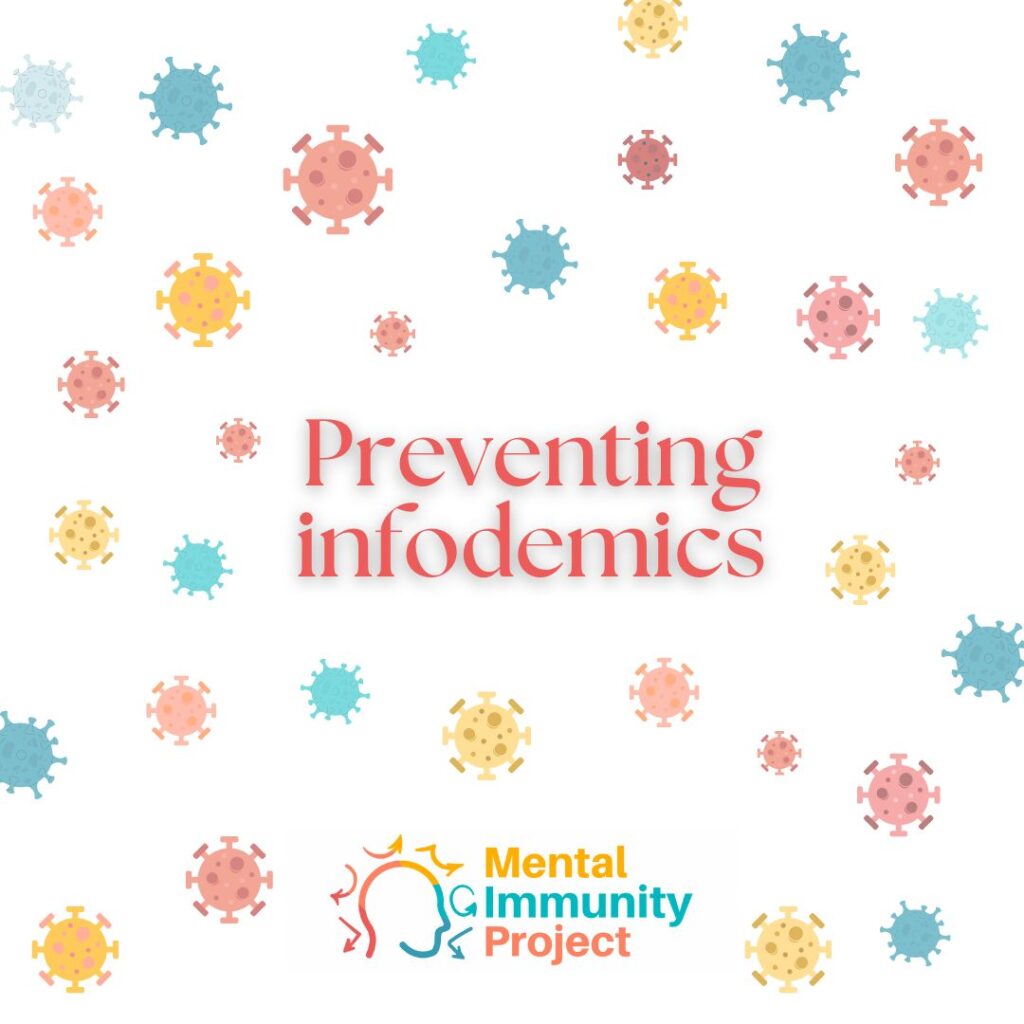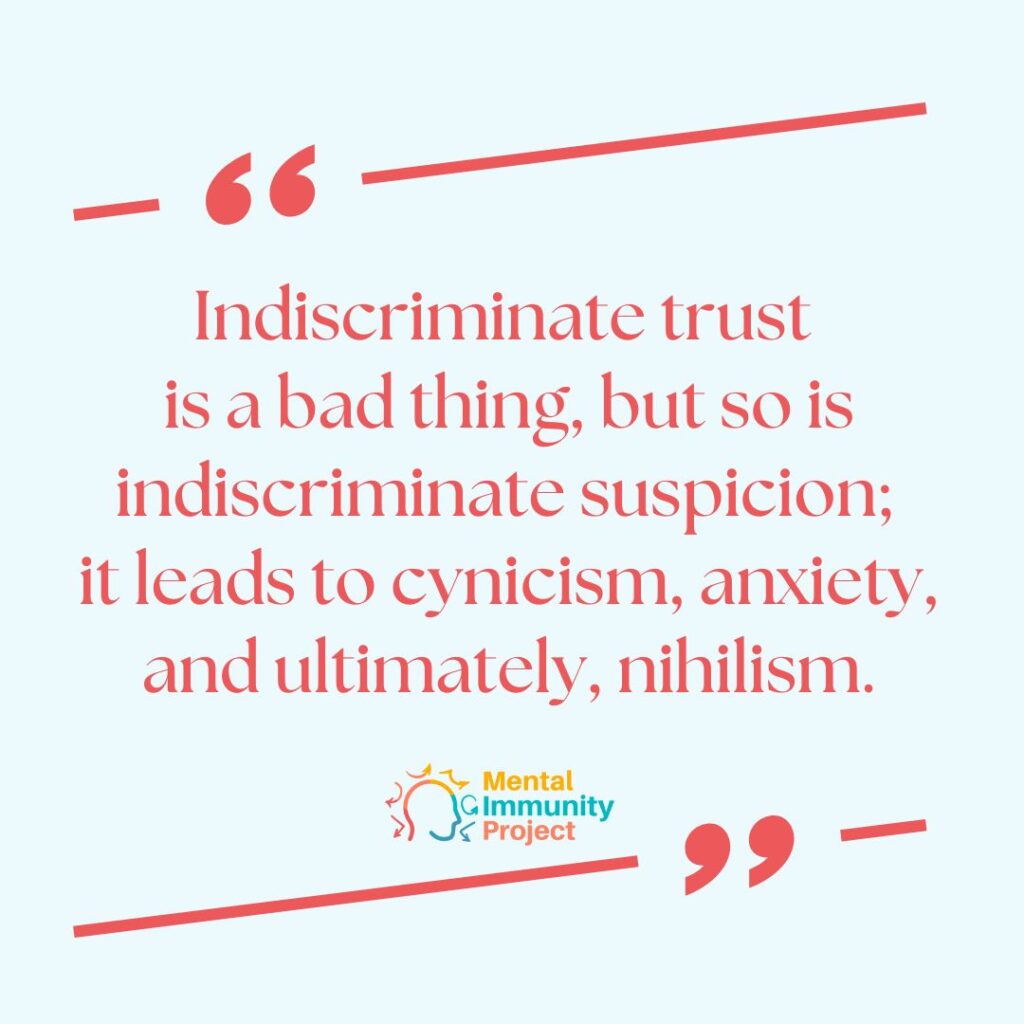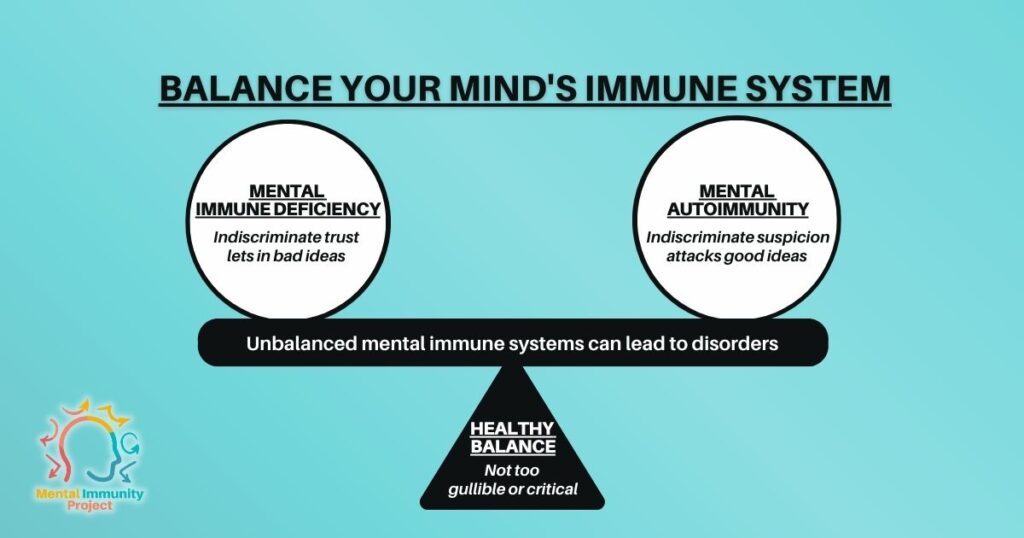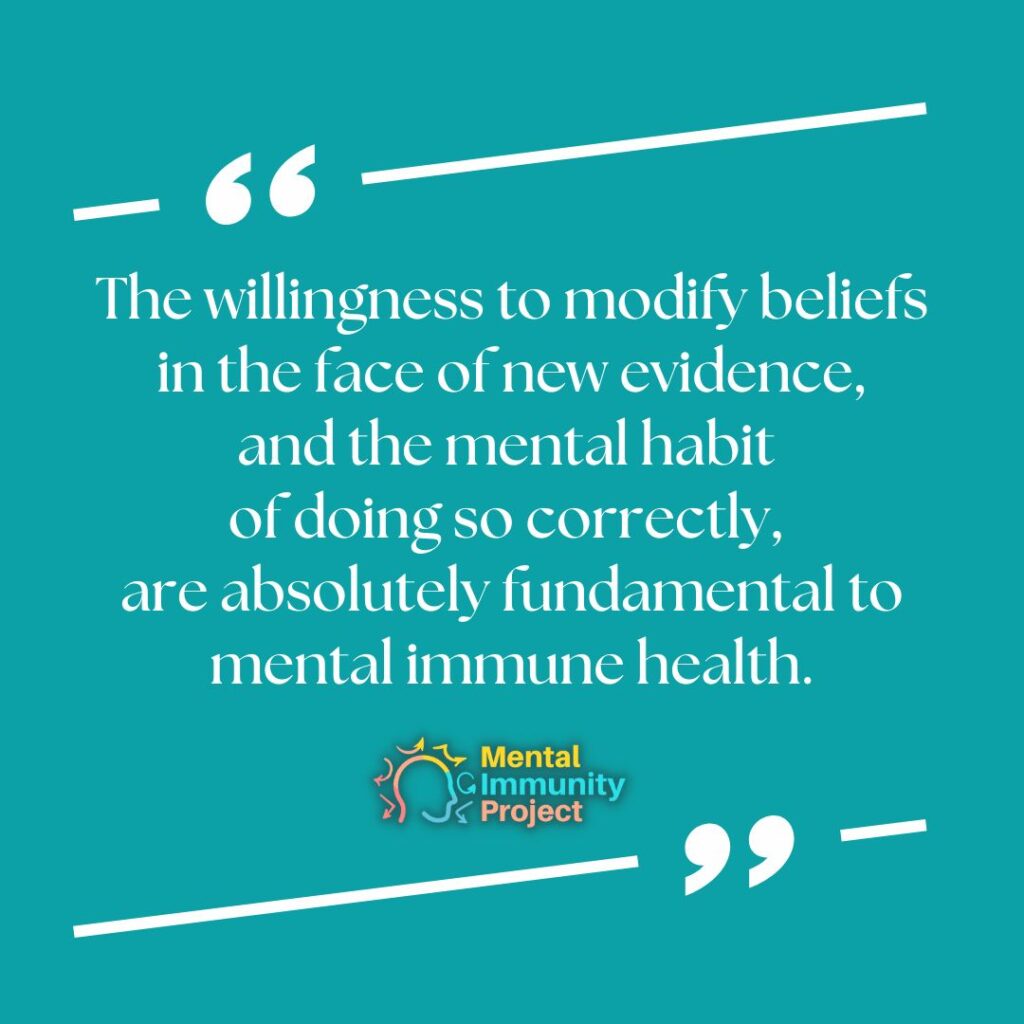What is mental immunity?
Meet your Mind’s immune System
Origin Story

Before we knew about germs, our ancestors lived in constant fear of infectious diseases. Smallpox. Tuberculosis. Cholera. Typhoid. For a long time, these seemed unavoidable: a necessary part of the human condition.
Then something amazing happened. We learned about germs. We learned how to control their spread. (Wash your hands, people!) We even discovered we could teach our bodies’ immune systems how to fight off the nasty little buggers. (That’s what vaccines do.) The science of immunology transformed the human condition, saving hundreds of millions – perhaps billions – of lives, and spared humanity untold suffering.
What if we could solve today’s “infodemic” problem the same way? Why not afford our minds the same protections we afford our bodies? What if we helped everyone boost their immunity to “viral” misinformation? Imagine the world we could build if mis and disinformation weren’t constantly warping our worldviews and setting us at odds!
Understanding Mental Immunity
Let’s start with the basics: your mind has an immune system. Just as your body needs to ward off harmful pathogens, your mind needs to ward off bad information. When the mind’s defenses don’t spot and remove them, “mind-germs” spread. (“Mind-germs” is a fun and useful way to think about falsehoods, misconceptions, mistaken beliefs, harmful ideas, etc.)
Our minds’ defenses only function properly, though, when we take care of them. To achieve peak mental performance, you have to know how mental immunity works.
Think of the mind as a kind of ideas festival. A well-run festival deploys security guards, and a well-ordered mind does something similar. Security guards monitor the gates, checking new information for warning signs that something might be amiss. (“May I see your ticket, ma’am? Looks like your evidence is in order. Enjoy the show!”)
Here’s the thing: the mind’s gatekeepers have expectations rooted in prior experiences. If new information conflicts with existing beliefs, gatekeepers are likely to deny entry, even if it’s the existing beliefs that are wrong!

Next are the security agents – questions and doubts – that circulate through the crowd of ideas, monitoring for troublemakers that got past the gatekeepers. If they’re on top of their game, they’ll even stop and check troublesome beliefs we’ve been hosting for years. (“I’m sorry sir, but you need to play nice with other festival-goers; otherwise, I’ll have to escort you outside!”)
Without proper training, these gatekeepers and security agents aren’t very effective. Instead, they favor information that fits with the worldview already on board. They tend to be biased against information that might disturb our preferred narratives. That’s why so many belief systems harden into rigid ideologies – worldviews that are actively resistant to learning new things. (No one is born an ideologue, yet many die stubbornly ideological.) This one human weakness has a profoundly negative impact on human wellbeing.
Properly placed, trust and suspicion are key to mental immune health. To protect ourselves from mind-germs, we need to pay attention to what our security team is up to and help them “level up” their game. Doubts are (like) the antibodies of the mind, so let them do their jobs. Listen to them. Ask questions, check evidence and reasons, test hypotheses, run consistency checks, and update your beliefs accordingly.
Mental Immune Disorders
Critical thinking is a fine thing, but healthy mental immune systems strike a balance. Uncritical thinking can let in lots of bad ideas, but hypercritical thinking can screen out lots of good ones! Put differently, there’s a “Goldilocks zone” where thinking is critical enough but not too critical. Outside this zone, mental immune disorders flourish, and minds lose their grip on reality.

Mental immune deficiencies occur when the mind fails to generate the antibodies – doubts, reservations, objections, etc – needed to fend off problematic ideas. If you’re too trusting or gullible, bad information tends to get past your filters.
Mental autoimmunity occurs when the mind’s defenses attack good information, perhaps because it threatens our identity. The mind’s security team, in other words, can become overzealous.
Consider someone who doesn’t trust “the mainstream media” or “elitist experts.” Maybe they call themself an “independent thinker.” Such a person may not realize that doubts can spiral out of control. Indiscriminate trust is a bad thing, but so is indiscriminate suspicion; it leads to cynicism, anxiety, and ultimately, nihilism.
As the saying goes, we want to keep an open mind…but not so open our brains fall out. We can be too gullible AND we can be too critical for our own good. Those with healthy mental immune systems strike a balance.
Infectious Ideas Spread in Communities
Pathogens spread through communities; so do infectious ideas. And some communities are more susceptible than others.
Communities that coalesce around shared beliefs, ideologies, and identities tend to become immune-compromised. These communities defend their beliefs by rewarding those who agree and punishing those who question. The impulse to protect shared beliefs suppresses the cognitive antibodies (doubts) needed to fight off infectious BS. In essence, there’s little infrastructure to slow the spread of bad information, so it spreads.

By contrast, communities of inquiry are bound by a commitment to the truth. They seek to develop a shared understanding of a dizzyingly complex reality. Though the whole truth is always likely to elude our grasp, we can evolve our understanding to approximate it more closely. Members of such communities learn to detach their identities from their beliefs, modulate their emotions, and above all, maintain a collaborative spirit. Members of these communities submit their ideas to others for testing. They reward healthy skepticism and humility. They rely on the work of experts and fact-checkers.
The willingness to modify beliefs in the face of new evidence, and the mental habit of doing so correctly, are absolutely fundamental to mental immune health. Those who defy better reasons to protect emotion-backed beliefs essentially damage their mind’s immune system.
Just as coordinated public health efforts are needed to halt the spread of infectious diseases, coordinated public health efforts are needed to halt the spread of infectious information. This doesn’t mean an entitled elite should police our thoughts (thought police are never a good idea); it means we need distributed networks of good-faith inquirers that respect hard-won expertise, test ideas collaboratively, and patiently build shared understanding.
Anyone can be part of the scientific enterprise broadly understood: just join a community of inquisitive folks, stay humble, and seek shared understanding. Given time, there’s no reason we humans can’t become “herd immune” to the worst forms of cognitive contagion!